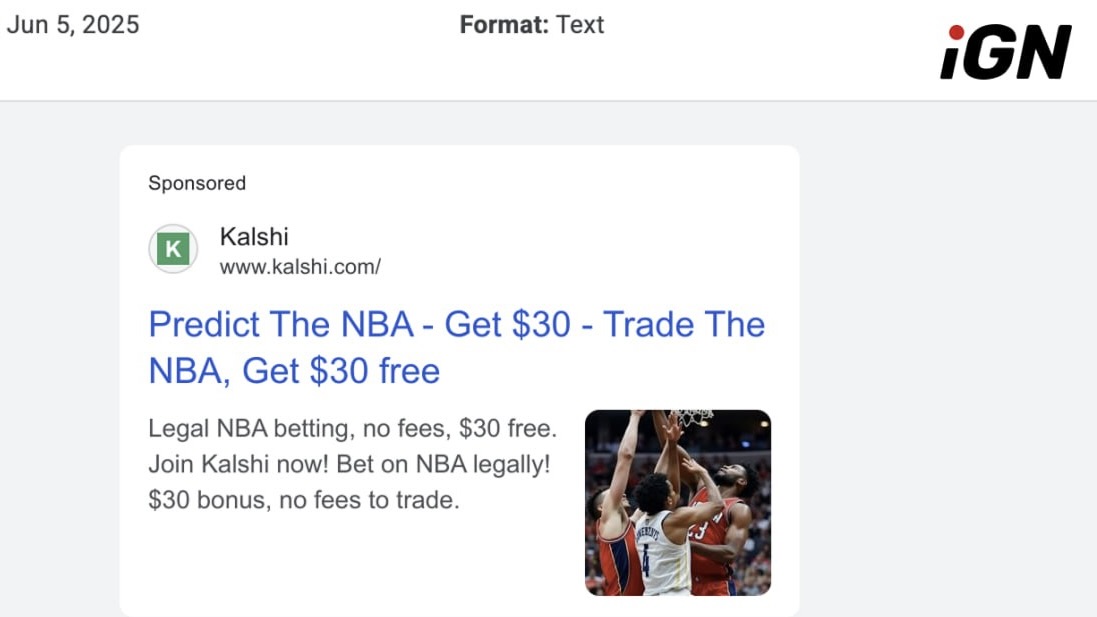Kalshi Denies Being a Sportsbook — Betting on Finance, Not on Bets

U.S.-based prediction market platform Kalshi insists it is not a sportsbook, even though it frequently uses gambling terminology in its marketing.
What Is Kalshi and How the Platform Works
Kalshi allows users to buy and sell contracts based on the outcome of real-world events — from sports games to economic indicators and political developments.
The company positions itself as a financial market maker, akin to a stock exchange.
Peer-to-Peer Trading Instead of Betting
Kalshi’s legal counsel, Josh Sterling, emphasizes that unlike traditional sportsbooks, the company does not set odds or take positions against users. Instead, Kalshi provides the infrastructure for peer-to-peer trading.
Two Ways to Trade on Kalshi
- Limit Orders: Users specify the price they’re willing to pay or accept for a contract (e.g., $0.60 for “yes” on the New York Mets winning).
- Market Maker Execution: Allows users to instantly enter or exit positions at current market prices.
Use of Gambling Language in Marketing
Despite its legal distancing from gambling, Kalshi leans into betting-related language in its promotional efforts:
- Taglines like: “Bet on the NBA legally!”
- Displaying market data in American Odds format
- Merchandise with slogans such as “What are the odds?”
Kalshi has since updated its App Store listing, replacing the word “bet” with “Trade the Future.” However, these elements continue to draw criticism from regulators and industry competitors.
Kalshi’s Defense
The company maintains that marketing language does not equate to operating a gambling platform. In an official statement, Kalshi said:
Any reference to ‘bets’ or ‘odds’ does not imply that Kalshi is a gambling platform or has changed its regulatory classification. Just like you can ‘bet’ on a stock or bond, you can trade on Kalshi.
How Kalshi Differs from Sportsbooks
| Kalshi | Sportsbooks |
|---|---|
| Does not set odds | Creates and manages betting lines and odds |
| Market makers reflect supply and demand | Takes on risk against the bettor |
| Earns revenue through transaction fees | Profits when users lose bets |
| Offers limit order functionality | Does not support user-defined orders |
The Role of Market Makers
Kalshi partners with both institutional firms (e.g., Susquehanna International Group) and individual traders to ensure liquidity and pricing stability. The company stresses that market makers do not set the lines — they merely facilitate trades based on user demand.
Legal Questions and Regulatory Tensions
Kalshi operates in all 50 U.S. states without holding a sportsbook license. The question of who should regulate the platform — state gaming commissions or the federal Commodity Futures Trading Commission (CFTC) — remains the subject of ongoing litigation. So far, courts have leaned toward federal oversight under the CFTC.
However, critics — including the National Council on Problem Gambling — argue that Kalshi poses the same addiction risks as traditional gambling, especially in light of partnerships with fintech platforms like Robinhood.
What Competitors Are Saying
Some industry players, such as Sporttrade CEO Alex Kane, call Kalshi’s effort to distance itself from gambling “absurd.” Sporttrade operates under gambling regulations in several states and openly identifies as a legal sports betting platform.
Kalshi’s Future: Finance or Gambling?
Kalshi continues to defend its identity as a financial platform. CEO Tarek Mansour has described the company’s legal battles as a “brutal, bloody war” for the future of prediction markets.
The outcome of these regulatory fights could shape not just Kalshi’s future — but the future of the entire U.S. prediction market industry.
